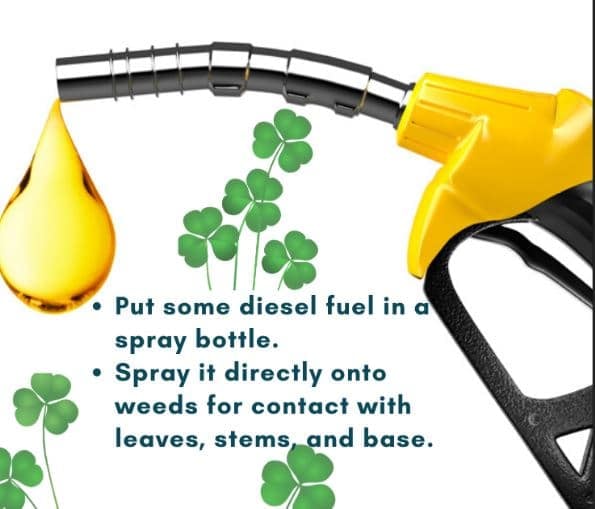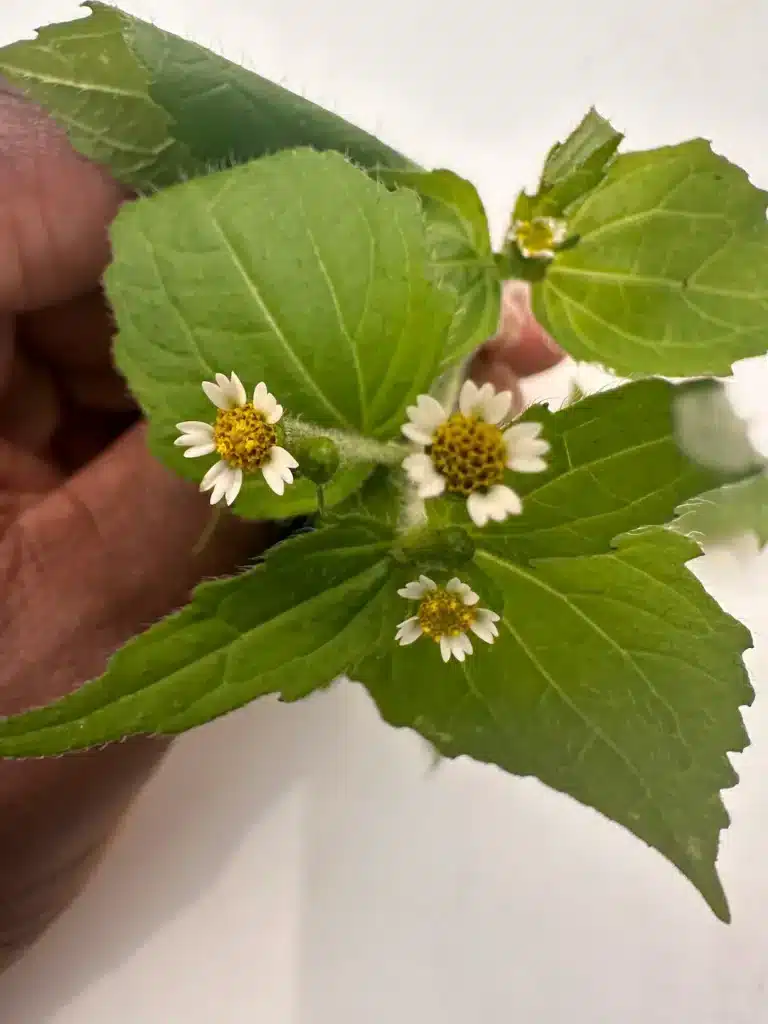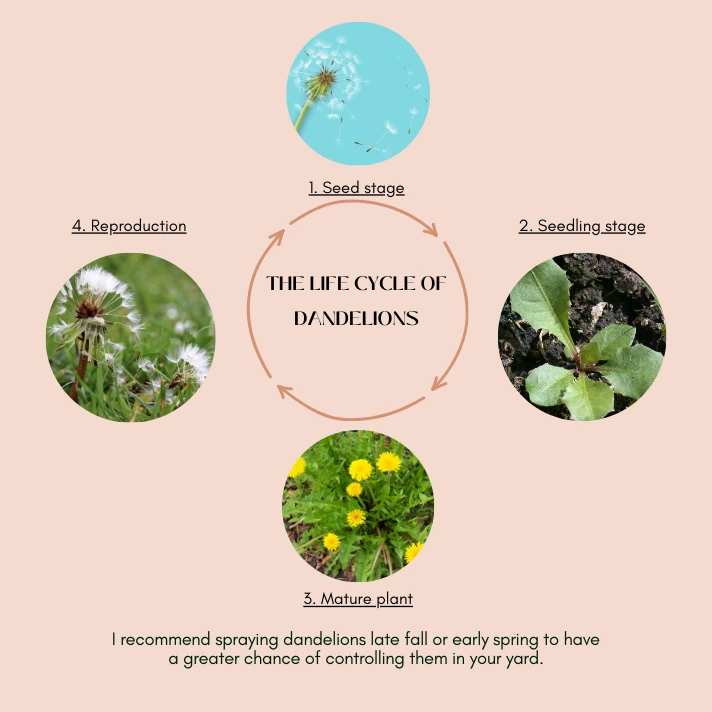How Do You Kill Dandelions in Lawn with Vinegar?
Controlling and managing the obnoxious perennial dandelions can be very expensive and involving. Thus, instead of using costly herbicides, use the local and cheap white vinegar. So, how do you use vinegar to kill dandelions? Is the use of vinegar on dandelions effective?
Horticultural vinegar contains 20% acetic acidic while regular vinegar contains 5% acetic acid. This acid destroys plant cell membranes, resulting in dehydration of plant tissue and plant’s death. White 20% concentrated horticultural vinegar is the right choice for old deep-rooted dandelion. You can use regular household vinegar on young dandelions.
The effectiveness of vinegar as an herbicide depends on its concentration and the dandelion’s age. Vinegar kills young dandelions, unlike well-established and deep-rooted old dandelions. Also, the strength of vinegar enhances its effectiveness. Vinegar is an affordable herbicide and easy to prepare at home.
Does vinegar kill dandelions permanently?
The potential of vinegar killing dandelions permanently is 50-50. It all depends on the acetic acid concentration and the dandelion’s age. Vinegar is not strong enough to permanently kill deep-rooted and well-established dandelions. Dandelions have long taproots of about 8-16 inches, and vinegar only burns the leaves. The deep well-established roots remain behind for regrowth.
High concentrations of about 20% acetic acid can permanently kill young dandelions. Spray the vinegar in the fall, when dandelions transfer sugars from leaves to the roots for winter storage. To permanently kill well-established dandelions spray them with vinegar and uproot them in 3 days after dying.
How to kill dandelions with vinegar
Horticultural vinegar contains 20% of acetic acidic and regular vinegar contains 5%. Acetic acid is the same component that commercial herbicides have. Acetic acid destroys plant cell membranes, resulting in dehydration of plant tissue. The dehydration results into dandelion’s death. Below are the two methods of preparing the vinegar solution:
Mixing vinegar with liquid soap
- Add one gallon of horticultural white vinegar into a bucket.
- Add two teaspoons of liquid soap (approximately 10ml) per gallon of vinegar. Soap makes the mixture sticky and easy to stick on weed leaves.
- Mix well and pour the mixture into a pump sprayer.
- Spray the weeds in the morning on a sunny day and at a temperature of about 77oF. Sunlight enhances the drying effect of vinegar.
- Spray all the exposed weed parts. That is, leaves, flowers, and stems.
- Vinegar is non-selective. Thus, do not spray the wanted plants.
- Rinse the sprayer and sterilize it.
Mixing vinegar with salt and soap
- Pour one gallon of the 20% concentrated horticultural vinegar in a bucket.
- Add 2 cups (approximately 473 ml) of the table to one gallon of vinegar.
- Add 10 ml of liquid soap to the mixture. Soap makes the solution sticky and can stick to the weed exposed parts.
- Mix well and pour the mixture into a sprayer pump.
- Spray the dandelions using the mixture in the morning of a sunny day.
- Be keen not to spray the desirable plants, as vinegar is non-selective.
- Clean and sterilize the sprayer pump and store it well.
How can you get rid of dandelions with vinegar without killing grass?
Vinegar is a non-selective herbicide. It kills all the undesirable and desirable plants it comes into contact with. There are two ways in which you can use vinegar to kill dandelions without killing the grass:
- Using vinegar as a pre-emergent herbicide: As a pre-emergent herbicide, it will disrupt the germination of dandelion seeds. Thus, your grass will grow well and free of dandelions. Ensure you use vinegar as pre-emergent before the dandelions start showing.
- Using vinegar as a post-emergent herbicide: As a post-emergent herbicide, apply only on the unwanted plants. Within a few hours, the dandelions start withering and browning. After three days, pull out the dead dandelions leaving behind your healthy grass. While using this method, the grass will sustain slight effects. So, after uprooting the dandelions, water and mow the lawn to wash any traces of vinegar.
How long does vinegar take to kill dandelions?
Spraying vinegar on dandelions gives quick results. In a few hours, the weeds starts to wither and turns brown, and with 24 hours, the dandelions start dying. Despite the fast results on the exposed parts, the effects of vinegar on dandelions do not last long.
Vinegar only kills the exposed parts leaving behind the deep taproot that regrows. So, after dying, pull the dandelions out and water the area to wash away any vinegar traces. Vinegar works well on young dandelions with one or two leaves. If you spray on young dandelions, the weed will die within 24 hours.
Dangers of using vinegar to kill dandelions
There are several risks that the use of vinegar poses the desirable, metal surfaces and human health. Below are some of the risks:
- Vinegar is a non-selective herbicide. It kills all the unwanted and wanted plants that they come into contact with.
- Vinegar only kills the foliage and stems of the dandelions leaving behind roots. This leads to regrowth through the buds that appear on the upper part of the roots.
- Vinegar only works well with young weeds of up to two weeks old. For the old and well-established, the roots remain behind and regrowth.
- Vinegar can cause severe burns, eye, and skin irritation that cause irreversible damages.
- Vinegar stains the surface of reactive metals such as iron, lawn furniture and the fence.
- Continued exposure to vinegar causes chronic bronchitis, dermatitis, and weakening of teeth enamel.
Precautions to take while using vinegar
Vinegar poses a lot of risks to desirable surfaces, metal surfaces, lawn furniture and human health. Thus, it is advisable to take precautionary when using vinegar. Below are some of the precaution measures to observe:
- Always spray vinegar on the unwanted plants only.
- Wear protective while handling vinegar.
- Do not spray vinegar on lawn furniture, the fence or any other metal surface
- Always clean and sterilize the equipment used to prepare and spray vinegar.
- Do not spray vinegar on a rainy day. The rain will wash it away.
- Do not use a spray pump with surfaces made of reactive metals.
References
- University of Minnesota, Extension Services: Vinegar-and-Epsom-salt-herbicides
- Oregon State University, Extension Services: How-can-I-naturally-kill-dandelions
University of Maryland, Extension Services: Vinegar-AnAlternativeToGlyphosate





